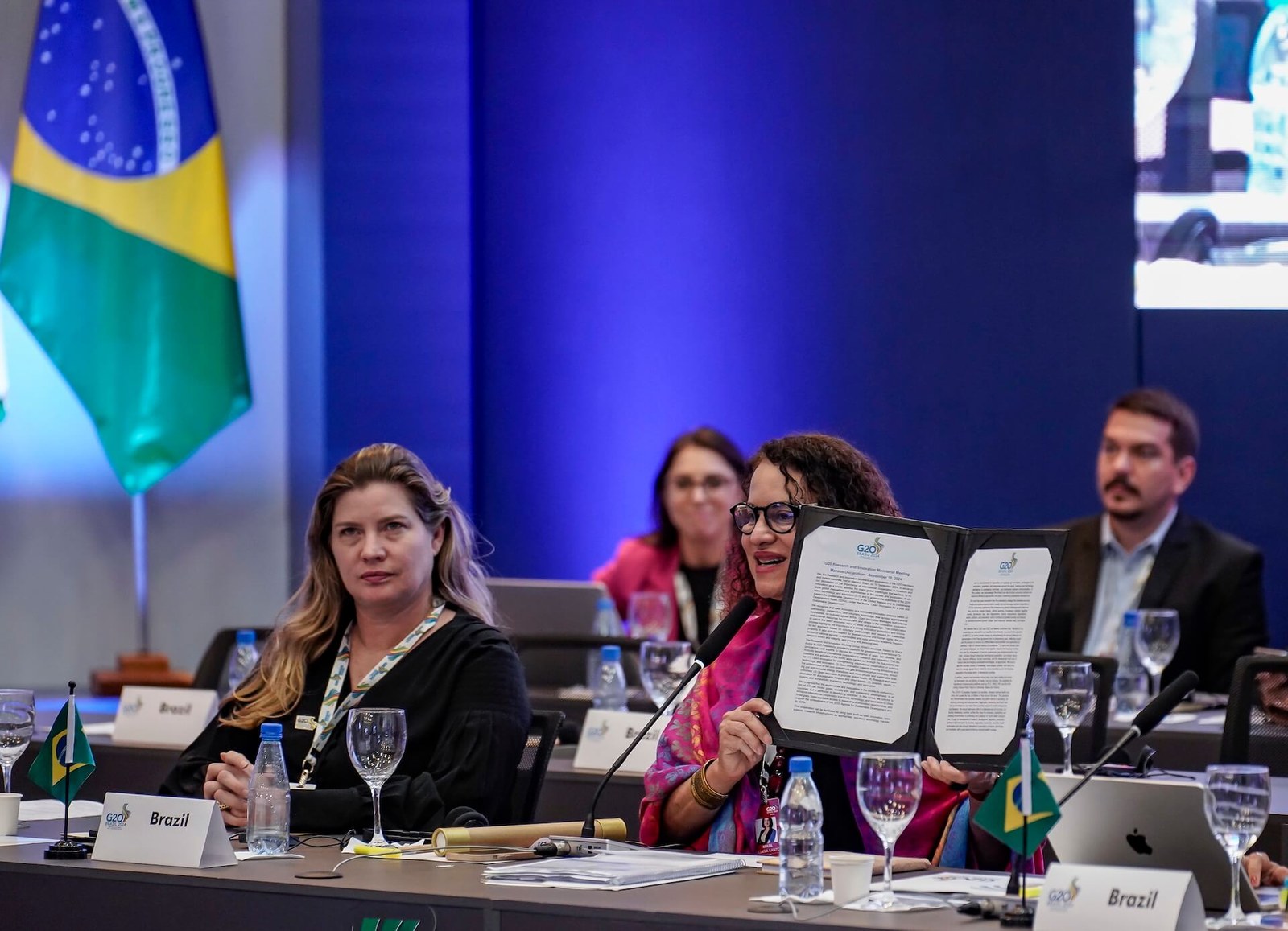G20 focuses on open innovation for sustainable development, according to a historic statement
The Ministerial Declaration of the Research and Innovation Working Group consolidates, at a meeting held in the city of Manaus, in the Brazilian Amazonia, the commitment of the G20 countries to promote open innovation as a tool to address global challenges and achieve the UN Sustainable Development Goals.

The Manaus Declaration, approved by consensus, reinforces the role of open innovation as a driving force for addressing the main global challenges and reducing inequalities in production and access to scientific and technological advancements. The ministers of Research and Innovation of the G20 countries and invited nations met on Thursday, the 19th, in the city of Manaus in the state of Amazonas and established a framework for international cooperation based on the Sustainable Development Goals (SDGs) of the 2030 Agenda of the United Nations (UN).
With the theme of Open Innovation for Fair and Sustainable Development, the meeting highlighted the need for a collaborative innovation model that transcends borders and the dichotomies between the Global North and South, leveraging knowledge produced on a global scale to generate economic and social value. “Open innovation is based on voluntary partnerships and respect for intellectual property, promoting a strong and collaborative ecosystem,” the ministers said during the statement.
The meeting emphasized that global access to science and innovation inequalities impede sustainable development, especially in developing countries. The G20 leaders pledged to expand international cooperation in science, technology, and innovation (STI) by promoting equitable access to research, innovation, and funding opportunities to close these gaps. “This cooperation will be essential to support the achievement of the 2030 Agenda and its SDGs,” they reinforce in the statement.
Protecting biodiversity and ecosystems was also an essential theme for sustainable development. The ministers reaffirmed the need to tackle environmental degradation and climate change through innovation, emphasizing the role of tropical forests, such as the Amazon Rainforest, and marine ecosystems.
The meeting emphasized that global access to science and innovation inequalities impede sustainable development, especially in developing countries. The G20 leaders pledged to expand international cooperation in science, technology, and innovation (STI) by promoting equitable access to research, innovation, and funding opportunities to close these gaps.
The COVID-19 pandemic was a clear reminder of inequalities in access to medical technologies and robust health systems. Thus, the Manaus Declaration reaffirms the commitment to promote international cooperation in research and innovation to ensure that all countries, especially developing ones, can respond to health emergencies in the future. The approved text states "We must guarantee universal health coverage based on innovation and accessible technologies. "
The Minister of Science and Technology of Brasil, Luciana Santos, highlighted that the consensus reached at the meeting represents a great victory for Brazilian diplomacy, known for its ability to build convergences. The Minister stressed the importance of addressing regional inequalities with the support of science, technology, and innovation, stating: "We need to face regional asymmetries to solve, through science and technology, the burning problems of the Brazilian people." She spoke about the focus on topics such as climate change, energy transition, digital transformation, and the fight against hunger.
For her, the meeting demonstrates the commitment to equity, diversity, and inclusion, emphasizing: "We seek, along with the G20 countries, which represent more than 85% of the global economy, to create convergences in this strategic agenda for any nation project".
It is expected that the theme will continue under South African presidency
Nomalungelo Gina, South Africa's Deputy Minister of Science, Technology, and Innovation, shared her expectations for the South African presidency of the G20 next year, with a particular focus on science, technology, and innovation. She stressed the importance of her country applying the knowledge learned in Brasil. “As we prepare to lead the G20 presidency in 2025, we have learned in many areas and will continue to work on them. Being here is an opportunity to learn more from the Brasil´s experiences and ensure that we can move forward based on what we have already accomplished", she said.
Deliverables from the Research and Innovation Working Group
Among the practical outcomes of the meeting is the creation of new partnerships, such as the collaboration between the G20 and the Belmont Forum for Research and Innovation in Amazonia. Agreements were approved to promote species cataloging and expand biodiversity databases through open science platforms, emphasizing the protection of forest and marine ecosystems. The proposal is that G20 countries work towards reducing emissions to achieve "net-zero greenhouse gas emissions and carbon neutrality, including fair and inclusive energy transitions, as well as more circular and sustainable bioeconomies."
The Declaration also results in several documents, including the G20 Strategy to Promote Cooperation in Open Innovation and the Recommendations on Diversity, Equity, Inclusion, and Accessibility in Science and Innovation. The document highlights the fundamental role that researcher mobility and international cooperation play in innovation and economic growth. It is encouraged that policies be created to facilitate this mobility, especially between the G20 countries and the invited nations.
Main points of the Manaus Declaration:
1. Open innovation as a pillar of international cooperation.
2. Promoting technologies to achieve carbon neutrality and reduce global greenhouse gas emissions.
3. Innovation in global health, addressing the lessons of the COVID-19 pandemic.
4. Research for a sustainable Amazonia rainforest, recognizing the importance of protecting it.
5. Diversity, equity, and inclusion in science and technology, focusing on giving a voice to historically marginalized groups.